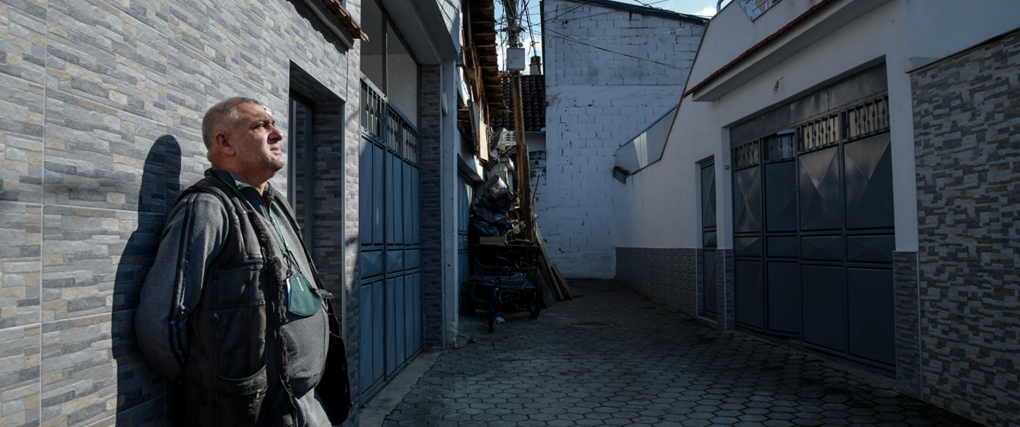STORIES OF ROMA, ASHKALI AND EGYPTIAN PERSECUTION STILL RARELY HEARD.
“Imagine that…” says Senad*, looking directly at me, after reconstructing the pivotal summer day of 21 years ago. He pauses.
We had met an hour earlier in the yard of his cousin, a neighbor in a Roma neighborhood within a Serb majority village. Senad had immediately asked me to show my ID. Trust doesn’t come easily when discrimination, persecution and exploitation have become almost part of the ancestral DNA.
Episodes of intimidation and mistreatment by Serbian police until the end of the war in 1999 still haunt the family, as does the trauma of the immediate post-war period. The new reality of the two decades since have also been far from fair or pleasant.
The cousin, our common acquaintance, smoothes out the introduction and for an hour Senad narrates his story thoroughly. After he is done, he underscores the gravity of what he has just told me with an illustration.
“Imagine yourself leaving this house now, taking the street and then somebody abducts you,” he says. “You were at work, just doing your job and you are abducted. And then you are killed.”
– – –
On a July morning in 1999, four Roma men — Senad in his 20s, his younger brother and two cousins — left their village and headed to Prishtina for work. The dire living conditions — similar to today’s — necessitated their survival from short-term, ad hoc physical work. That day, a Kosovo Serb employed them to help him move out of his apartment in the center of Prishtina.
Senad recalls that as they were carrying the furniture down from the upper floor, a group of Albanian men gathered in front of the building and mocked them, pointing out that they were working for a Serb.
KFOR soldiers arrived on the scene. The Serb man had called NATO’s peacekeeping troops to ensure his safety on his journey out of Prishtina.
The war was officially over and almost 900,000 expelled Albanians continued to return to their liberated homes. But as they did so, a new kind of a complicated and gloomy reality was emerging.
The Albanian majority had endured long years of oppression and apertheid, in combination with a systematic campaign — orchestrated by the highest levels of the Serbian and Yugoslav governments in power at the time — to terrorize, kill and expel them.
Read the full article here.


